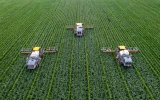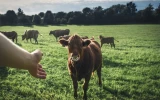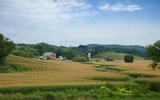What's a CPH Number (Do You Need One)?
Starting a farm from scratch can be hard work. Aside from taking care of the livestock animals and planting crops on your farm, you’ll also need to think about the legal work involved in managing farmland in the U.K. For instance, what is a CPH number? And do you need one?
In the UK, a CPH number is a set of numbers assigned to a livestock holding. Its purpose is to allow the government to trace any holdings with infected livestock and prevent the disease from spreading. If you have one or more types of livestock on your land, it's important to register for a CPH number.
Once your registration is accepted, the Rural Payments Agency will issue you a CPH number within ten U.K. working days. And if there are any changes to your CPH details, then you must inform the RPA within 30 days. Let's dive in for more in-depth information
Summary
- A CPH number is a legal requirement for people who own certain livestock species or more than 50 poultry.
- The purpose of the CPH is so the government can monitor and manage any outbreak of diseases.
- A CPH number can also be used as part of applications for agricultural grants or subsidies.
- A CPH number has nine digits, which can geographically pinpoint the location where livestock is kept.

On this page:
A CPH Number is A Legal Requirement for Livestock Holdings
A CPH number, or County Parish Holding number, is a unique geographic reference assigned to a holding or location where animals are kept in the UK. It is issued by the Rural Payments Agency and is a legal requirement for anyone who keeps livestock.
The CPH number is used for disease control and prevention as well as to ensure that livestock movements can be traced and monitored. It is also necessary for applying for certain grants and subsidies. If you keep livestock in the UK, you must have a CPH number.
If you do not obtain a CPH while keeping livestock, it could result in legal penalties and fines, such as being unable to legally trade in the market or move or sell their farm animals.
Types of CPH numbers
There are currently two types of CPH numbers that can be issued to you. One is permanent, and the other is temporary. Permanent CPH numbers are typically issued when you first register for a CPH number. Temporary CPH numbers are used for land and buildings only on a temporary basis.
1. The permanent CPH number
When you first register for a CPH, you will be issued a permanent CPH number. A permanent CPH is where you plan to use the land for livestock purposes on a continual basis. For some farmers and smallholders who have multiple CPH registrations for different sites, they can now merge them together into a single number, for as long as all of the locations are within a 10-mile radius.
2. The tCPH (temporary County Parish Holding) number
A temporary CPH number allows you to temporarily use buildings and land that aren’t part of your main CPH for up to 364 days. By creating a tCPH, landowners also do not need to keep records of movements from that land since it’s not part of their main CPH number. For example, seasonal grazing requires a tCPH.
If you are temporarily using any land that isn’t part of your permanent county parish land (CPH) and have not established a tCPH, then you should be aware of the following:
- You must use the landholder’s CPH to report any movements between land with different CPH numbers
- Keep their holding register updated and have a copy of movement licences (if licenses are applicable)
- For cattle livestock, you must move them to a different CPH if it is within 60 days of a clear whole herd test or following a clear pre-movement test.
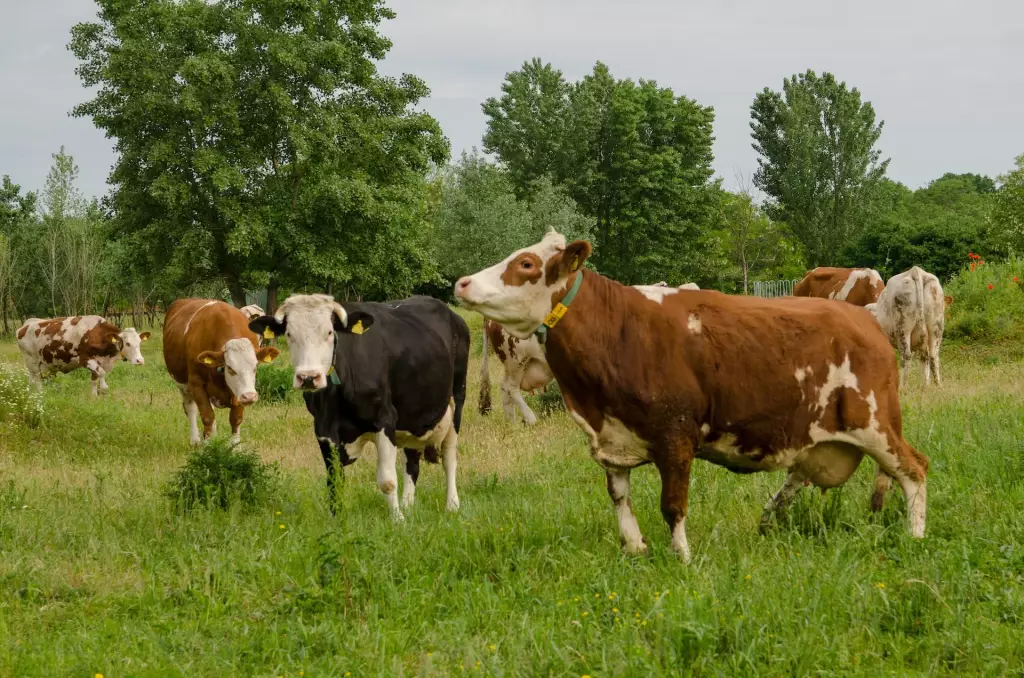
You Need a CPH Number if You Have Livestock on Your Land
In the UK, a CPH number is required by law for anyone who owns the land where livestock is kept. This is important, especially if you plan to keep livestock for many years on your land, or if you are selling, moving, or transporting livestock on your land.
If you keep one or more of the following livestock species, you are required by law to register for a CPH number with the Animal and Plant Health Agency (APHA):
- Cattle
- Deer
- Sheep
- Goats
- Pigs
- Poultry (more than 50)
In cases where you decide to keep livestock as pets, you are still required by law to register for a CPH number for the land area where the animal is kept. The only instance in which you don’t need a CPH number is if you don’t plan to keep any of the livestock animals mentioned above. Keeping small pets like cats, dogs, and rabbits or other non-commercial animals is not included.
If you’re not sure if you need a CPH number or are unsure what type of CPH number you need, you can contact the Rural Payments Agency UK for more details.
Rural Payments Agency
Telephone (Defra rural services helpline): 03000 200 301
Monday to Friday, 8:30 am to 5 pm
What a CPH Number Looks Like
A CPH number has nine digits which let the government identify the location of your farm smallholding or rural business. It is coded according to county (2 digits), parish (3 digits), and holding (4 digits) and can geographically pinpoint your land to the authorities.
The first two digits are determined by the location of the holding within the U.K. The next three digits are assigned sequentially to each holding within that region, and the final four digits are randomly assigned to each holding. The CPH number is an important identification system for tracking animals and preventing the spread of diseases.
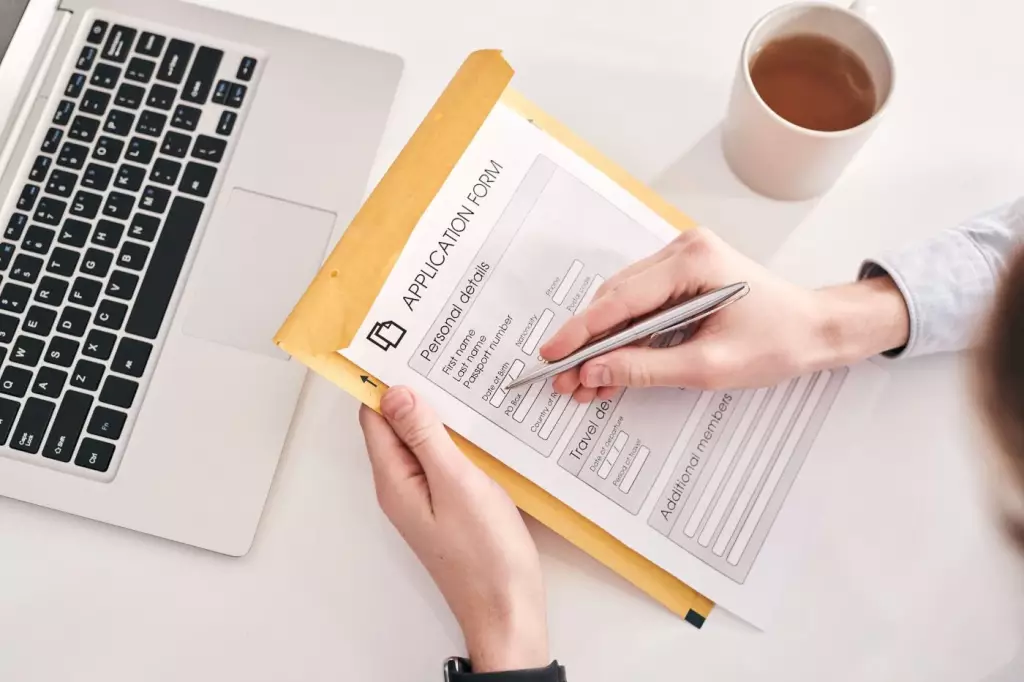
How To Get A CPH Number
In the UK, to apply for a CPH number, you must be a livestock keeper or owner of land used for livestock. You need to register with the Rural Payments Agency (RPA) to get a CPH number, and there are no fees involved in the process.
You will need to provide personal information such as your name, address, contact information, and National Insurance number. Additionally, you will need to provide information about your land, including the type of land, its location, and the number and types of livestock you keep. The RPA will then issue you a unique CPH number for your holding within 10 U.K. working days.
Take note that if your area is in Wales, you will need to register for a CPH number at the Welsh government website. If your area is in Scotland, you will need to contact your local area office to get your CPH number. And if you are in England, you will need to visit the UK government website to register for a CPH number.
Applying via an application form is also relatively simple. You’ll just need to provide the Rural Payment Agency with the following information:
- Single Business Identifier (SBI)
- Business Name (if you’re operating one on your land)
- Land location (land parcel reference number(s), postcode or OS grid reference)
- Details of your tenure
- What you plan to do on your land
- Contact details
Once you’ve received your CPH number, you’ll need to call or email the Animal Plant Health Agency and give them your CPH number. Do this before moving your livestock onto your holding.
Animal and Plant Health Agency
Telephone (Defra rural services helpline): 03000 200 301
Monday to Friday, 8:30 am to 5 pm
Email: customer.registration@apha.gov.uk

